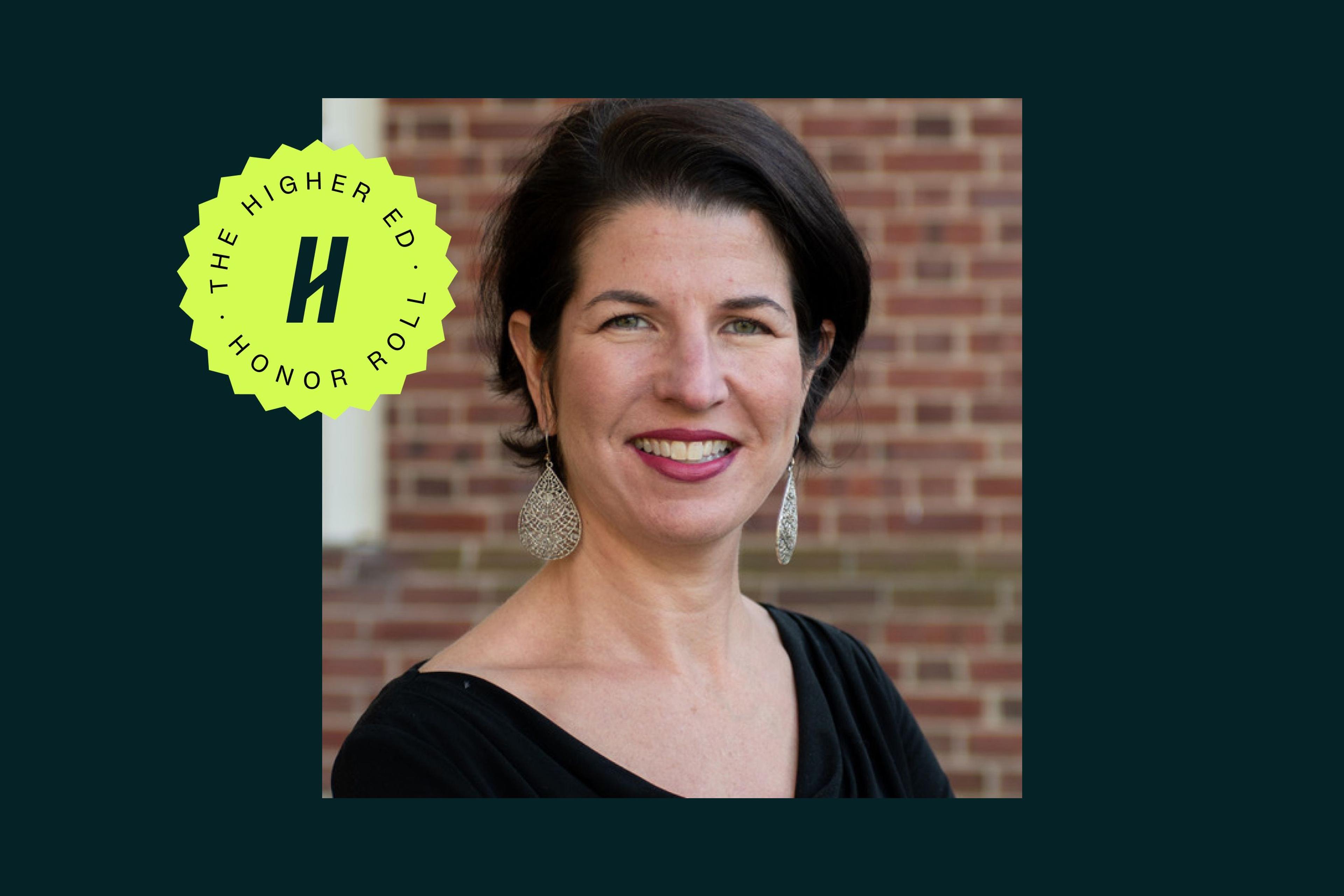As a former employment and commercial litigation lawyer, and recruitment operations manager before that, Beth Throne has been active in workforce advocacy and development long before stepping foot on a college campus.
Now, as the Senior Associate Dean of Student Affairs at Franklin & Marshall College, Beth supports students by providing leadership for the Offices of Student and Post-Graduate Development (OSPGD) and Student Employment; overseeing professional development for 100+ Student Affairs staff to support student mental health and wellness, advancing equity and inclusion, and more; and teaching “Designing a Future,” an interdisciplinary course she created that helps students to imagine and achieve a meaningful and value-congruent life—to name a few. Beth’s thoughtful and deliberate approach to her work and beyond can be described by one of her favorite quotes at the moment: “Every action you take is a vote for the type of person you wish to become.” - James Clear, Atomic Habits.
Read our June Honor Roll feature to learn how Beth and her team are leveraging cross-functional collaboration, creative programming, and Handshake to support students from college to career.
Take us back to the beginning. How did you come to work in higher ed?
Nearly 12 years ago, I was recruited by my institution's former President and Dean of the College to rethink and improve the way we prepare students for success in life—not just work—beyond college. Following extensive listening sessions with student, faculty, staff, alumni and parents, I presented a plan to revamp the institution’s approach to career, personal, and leadership development.
In the 10 years since, OSPGD has consistently engaged 90+% of the entire student body and 4,000+ graduates and parents yearly, become a trusted community resource on workforce trends and preparation, inspired significant philanthropy, and regularly achieved 95+% employment rates for graduates within six months of graduation.
Wow—talk about impact! Can you share a couple of initiatives or events your team has implemented to help accomplish this success?
Twice a year, OSPGD partners with our Provost and Registrar to deliver a "Not a Major Decision: The Reality & Impact of Major Declaration" Workshop specifically for sophomores to demystify the process and post-graduate relevance of choosing a major, answer their questions, and address the stress of it all. Not only do we set students at ease about exploring, identifying, and majoring in the discipline(s) that most interest and energize them, we also share alumni network resources. These workshops became so popular that we began offering a version for parents!
Related to this, one of my favorite events is the Sophomore Declaration Celebration, which joins students, faculty, and alumni by major for a dinner celebration honoring this academic milestone and the halfway point of the students’ liberal arts experience.

How are you utilizing data from Handshake to review your programming and inform future planning?
We use Handshake to track and report on event and advising session engagement by class years, majors, and the various student demographic areas we have imported into Handshake from Banner. That data is helpful in planning our programming and advising initiatives, as well as proactive outreach to populations we are not engaging as readily so we can improve the impact of our offerings.
How does Handshake help make your team more efficient?
With a robust team of advisors meeting with students regularly, it’s helpful to the advisors to see and access notes from previous advising sessions in Handshake. It is equally as important to students that they don’t have to backtrack in their conversations and progress, as they are known and valued by the advising team who has taken the time to understand the student's journey through that date.
What are the biggest challenges your students face when it comes to professional development?
Approaching networking with alumni, parents, and friends of the college in ways that are not transactional. To help solve for this, my team infuses how and why to network into 1:1 advising conversations and programs, often providing practice and coaching on the etiquette of invitation, preparation, and post-conversation expression of gratitude. This helps students engage their network strategically through advanced preparation, research, and inspiration from the life experience of another rather than asking for a job or referral merely because of a shared institutional affinity.
What is one of your favorite student success stories?
I truly cannot choose just one. It is the first-generation student who immigrated to the US through the Diversity Visa Lottery, graduated after earning multiple prestigious fellowships and internships, pursued a legal and public service career after college, and now regularly mentors and hires our students and graduates.
It is the passionate Art History major with a lifelong love of antique cars—and a number of individuals in his life who doubted the marketability of his choice of major—who submitted dozens of employment applications before securing global leadership roles with RM Sotheby’s, the world’s leading classic car auction house.
It is the graduate who became a Teach For America Corps Member and earned his M.S.Ed. in Secondary Science Education before landing his current role as a nationally-regarded breast surgical oncologist and assistant professor and who continues to be involved in the education of medical students and breast surgical oncology fellows.
Having a small role in their remarkable life trajectory is so fulfilling, I cannot imagine any other work to be as meaningful.
